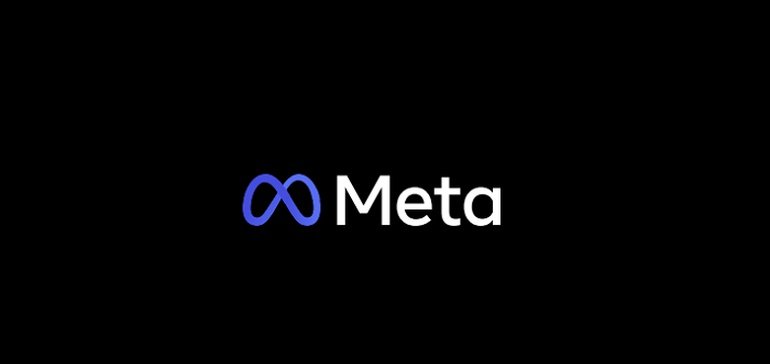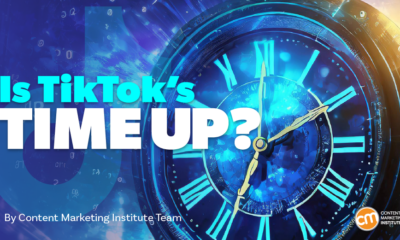SOCIAL
New Reports Show that Meta is Working with political Activists to Seed Concerns About TikTok

If you had any doubts about the level of threat that TikTok poses to Facebook, this might help to solidify your thinking.
Today, in news that’s both surprising and not at the same time, The Washington Post has reported that Facebook and Instagram’s parent company Meta hired political campaigning group Targeted Victory to run a smear campaign designed to sway public opinion against the increasingly popular short-form video app.
As per the report:
“Targeted Victory [was hired to] “get the message out that while Meta is the current punching bag, TikTok is the real threat, especially as a foreign-owned app that is #1 in sharing data that young teens are using.”
Meta’s been working with Targeted Victory to seed questions about TikTok, largely via local news outlets across the US. Those efforts have seemingly included inventing harmful trends via challenges and memes, in order to amplify backlash against the app.
“In October, Targeted Victory worked to spread rumors of the ‘Slap a Teacher TikTok Challenge’ in local news, touting a local news report on the alleged challenge in Hawaii. In reality, no such challenge existed on TikTok.”
As you may recall, TikTok was actually forced to take stronger action against harmful challenges late last year, after reports of injuries and harm sustained by users taking part in the same.
Now, you have to wonder whether those reports were even real, and what influence TikTok actually had on such.
The revelations that Meta is looking to smear TikTok are significant – and it’s worth noting that Meta hasn’t denied the Post’s claims. But they’re also fairly in line with what we know of Meta’s past actions to influence backlash against the short-form video app.
In late 2019, for example, as per another report from WSJ, Meta CEO Mark Zuckerberg held various meetings with US politicians, in which he sought to emphasize concerns about TikTok’s links to the Chinese Government. Zuckerberg met with several senators, in which he pointed out TikTok’s obligations and connections, while Zuckerberg also made the same case to then US President Donald Trump during a private dinner, reiterating the threat that Chinese internet companies pose to American businesses.
Zuckerberg’s various meetings were held in October 2019, and a month later, the US Government announced a national security investigation into TikTok, which eventually resulted in the failed attempt by the Trump Administration to force TikTok into US ownership.
Given that we know that Meta has sought to emphasize such concerns before, and that Meta has worked with Targeted Victory in the past as well, it’s no real surprise to find that it’s looking to stoke concerns about TikTok in this way again.
But still, it is a concern. Should a private company be acting like a political entity, in seeking to use influence operations to stifle a potential competitor – especially a company with the capacity to influence on the scale that Meta can via its apps?
No doubt this will form another element of the ongoing antitrust cases against Meta, which are specifically focused on its acquisitions of Instagram and WhatsApp – though the additional evidence of how it seeks to crush its competition will still be permissible in evidence.
But are we surprised, really? Meta has a history of seeking to kill off competitors, either by acquisition or by market force.
As Snap CEO Evan Spiegel recalled of his meeting with Zuckerberg in 2013, in which he rejected Meta’s $3 billion takeover offer for his rising app:
“Zuckerberg flew to Spiegel’s hometown, Los Angeles, arranging for a private apartment to host the secret sit-down. When Spiegel showed up with his cofounder Bobby Murphy, who serves as Snapchat’s chief technology officer, Zuckerberg had a specific agenda ready. He tried to draw out the partners’ vision for Snapchat – and he described Facebook’s new product, Poke, a mobile app for sharing photos and making them disappear. It would debut in a matter of days. And in case there was any nuance missed, Zuckerberg would soon change the large sign outside its Silicon Valley campus from its iconic thumbs-up “like” symbol to the Poke icon. Remembers Spiegel: “It was basically like, ‘We’re going to crush you.’”
This is part of Zuckerberg’s DNA, which inherently makes it a part of Meta’s make-up. Meta will seek to win out, in any way it can, and if that means quashing a rival through targeted PR, so be it.
But what can be done about it? It’s not illegal for Meta to campaign in this way – and as noted, Meta’s response to this latest story was to basically dismiss concerns, saying that TikTok should be willing to face a level of scrutiny in line with its success.
Again, this is an element for the various antitrust investigations to consider. But a surprise? Hardly
SOCIAL
Snapchat Explores New Messaging Retention Feature: A Game-Changer or Risky Move?

In a recent announcement, Snapchat revealed a groundbreaking update that challenges its traditional design ethos. The platform is experimenting with an option that allows users to defy the 24-hour auto-delete rule, a feature synonymous with Snapchat’s ephemeral messaging model.
The proposed change aims to introduce a “Never delete” option in messaging retention settings, aligning Snapchat more closely with conventional messaging apps. While this move may blur Snapchat’s distinctive selling point, Snap appears convinced of its necessity.
According to Snap, the decision stems from user feedback and a commitment to innovation based on user needs. The company aims to provide greater flexibility and control over conversations, catering to the preferences of its community.
Currently undergoing trials in select markets, the new feature empowers users to adjust retention settings on a conversation-by-conversation basis. Flexibility remains paramount, with participants able to modify settings within chats and receive in-chat notifications to ensure transparency.
Snapchat underscores that the default auto-delete feature will persist, reinforcing its design philosophy centered on ephemerality. However, with the app gaining traction as a primary messaging platform, the option offers users a means to preserve longer chat histories.
The update marks a pivotal moment for Snapchat, renowned for its disappearing message premise, especially popular among younger demographics. Retaining this focus has been pivotal to Snapchat’s identity, but the shift suggests a broader strategy aimed at diversifying its user base.
This strategy may appeal particularly to older demographics, potentially extending Snapchat’s relevance as users age. By emulating features of conventional messaging platforms, Snapchat seeks to enhance its appeal and broaden its reach.
Yet, the introduction of message retention poses questions about Snapchat’s uniqueness. While addressing user demands, the risk of diluting Snapchat’s distinctiveness looms large.
As Snapchat ventures into uncharted territory, the outcome of this experiment remains uncertain. Will message retention propel Snapchat to new heights, or will it compromise the platform’s uniqueness?
Only time will tell.
SOCIAL
Catering to specific audience boosts your business, says accountant turned coach

While it is tempting to try to appeal to a broad audience, the founder of alcohol-free coaching service Just the Tonic, Sandra Parker, believes the best thing you can do for your business is focus on your niche. Here’s how she did just that.
When running a business, reaching out to as many clients as possible can be tempting. But it also risks making your marketing “too generic,” warns Sandra Parker, the founder of Just The Tonic Coaching.
“From the very start of my business, I knew exactly who I could help and who I couldn’t,” Parker told My Biggest Lessons.
Parker struggled with alcohol dependence as a young professional. Today, her business targets high-achieving individuals who face challenges similar to those she had early in her career.
“I understand their frustrations, I understand their fears, and I understand their coping mechanisms and the stories they’re telling themselves,” Parker said. “Because of that, I’m able to market very effectively, to speak in a language that they understand, and am able to reach them.”Â
“I believe that it’s really important that you know exactly who your customer or your client is, and you target them, and you resist the temptation to make your marketing too generic to try and reach everyone,” she explained.
“If you speak specifically to your target clients, you will reach them, and I believe that’s the way that you’re going to be more successful.
Watch the video for more of Sandra Parker’s biggest lessons.
SOCIAL
Instagram Tests Live-Stream Games to Enhance Engagement

Instagram’s testing out some new options to help spice up your live-streams in the app, with some live broadcasters now able to select a game that they can play with viewers in-stream.
As you can see in these example screens, posted by Ahmed Ghanem, some creators now have the option to play either “This or That”, a question and answer prompt that you can share with your viewers, or “Trivia”, to generate more engagement within your IG live-streams.
That could be a simple way to spark more conversation and interaction, which could then lead into further engagement opportunities from your live audience.
Meta’s been exploring more ways to make live-streaming a bigger consideration for IG creators, with a view to live-streams potentially catching on with more users.
That includes the gradual expansion of its “Stars” live-stream donation program, giving more creators in more regions a means to accept donations from live-stream viewers, while back in December, Instagram also added some new options to make it easier to go live using third-party tools via desktop PCs.
Live streaming has been a major shift in China, where shopping live-streams, in particular, have led to massive opportunities for streaming platforms. They haven’t caught on in the same way in Western regions, but as TikTok and YouTube look to push live-stream adoption, there is still a chance that they will become a much bigger element in future.
Which is why IG is also trying to stay in touch, and add more ways for its creators to engage via streams. Live-stream games is another element within this, which could make this a better community-building, and potentially sales-driving option.
We’ve asked Instagram for more information on this test, and we’ll update this post if/when we hear back.
-

 WORDPRESS7 days ago
WORDPRESS7 days agoTurkish startup ikas attracts $20M for its e-commerce platform designed for small businesses
-

 MARKETING6 days ago
MARKETING6 days agoRoundel Media Studio: What to Expect From Target’s New Self-Service Platform
-

 SEO6 days ago
SEO6 days agoGoogle Limits News Links In California Over Proposed ‘Link Tax’ Law
-

 SEARCHENGINES7 days ago
SEARCHENGINES7 days agoGoogle Search Results Can Be Harmful & Dangerous In Some Cases
-
SEARCHENGINES6 days ago
Daily Search Forum Recap: April 12, 2024
-

 SEO5 days ago
SEO5 days ago10 Paid Search & PPC Planning Best Practices
-

 SEARCHENGINES5 days ago
SEARCHENGINES5 days agoGoogle Core Update Volatility, Helpful Content Update Gone, Dangerous Google Search Results & Google Ads Confusion
-

 SEO6 days ago
SEO6 days agoGoogle Unplugs “Notes on Search” Experiment















You must be logged in to post a comment Login